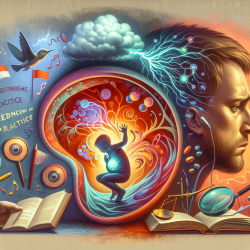Leading the Way: Special Education Directors and Their Vital Role
Special Education Directors play a crucial role in the educational landscape, ensuring that students with disabilities receive a free and appropriate education. This responsibility requires a deep understanding of special education laws, best practices, and a commitment to fostering an inclusive environment. At TinyEYE, we recognize the importance of these leaders in shaping the future of special education, and we aim to support them through our online therapy services.
Foundations of Leadership
According to the Special Education Director Handbook, the foundation of leadership in special education involves demonstrating comprehensive knowledge of special education programs, laws, and best practices. Directors must set high standards and a positive direction consistent with state values and mission. Key performance indicators for leadership include promoting the belief that education is a fundamental right for all students and maintaining accountability for educational processes.
Building Relationships and Ethical Standards
Building mutually respectful relationships is essential. Effective listening and empathetic responses help in fostering these relationships. Additionally, Special Education Directors are expected to model core professional values and demonstrate ethical behavior, acting with integrity in both word and action.
Special Education and School Systems
Directors must also navigate the complexities of school systems, applying a systems approach to develop special education programs. This includes understanding leadership roles, promoting a positive culture, and supporting systems thinking at all organizational levels. Collaboration with various educational agencies and community stakeholders is critical to ensure the success of these programs.
Law and Policy Expertise
A thorough understanding of relevant federal and state statutes, regulations, and policies is necessary for Special Education Directors. They must be able to implement legal requirements and advocate on behalf of students with disabilities. This includes developing student-centered Individualized Education Programs (IEPs) and ensuring compliance with data collection and reporting requirements.
Instructional Leadership
Integrating general and special education to support all students is another critical responsibility. Directors facilitate the attainment of state standards and promote high instructional standards for students with disabilities. Implementing evidence-based instructional practices and supporting staff development are key components of this leadership.
Program Planning and Evaluation
Evaluating the efficacy and efficiency of special education programs is vital. Directors use evaluation data to improve services and facilitate strategic planning. This includes ensuring that programs are complementary to general education and that all stakeholders are involved in the planning process.
Conclusion
The role of a Special Education Director is multifaceted, requiring a balance of leadership, legal knowledge, and collaborative skills. At TinyEYE, we are committed to supporting these leaders in their mission to provide exceptional education for all students. For more information, please follow this link.










